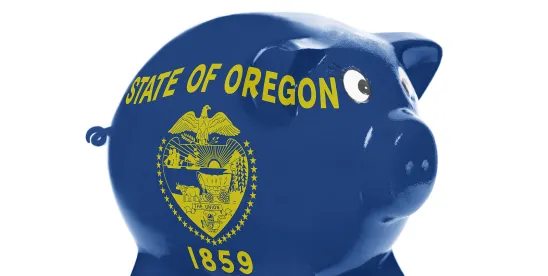On May 28, 2025, Oregon Gov. Tina Kotek signed HB 2119 into law. Having received strong support in the Oregon legislature, the law allows for associational standing in state tax cases—that is, membership organizations now have statutory standing to seek declaratory relief on their members’ behalf in the Oregon Tax Court. Associational standing may be granted for matters involving any number of state and local tax issues, including personal income, property, corporate excise, etc.
HB 2119 codifies Oregon’s requirements for associational standing, which mirror the long-standing federal three-prong test established in the U.S. Supreme Court case Hunt v. Wash. State Apple Advert. Comm'n.1 To have associational standing there must be an adverse impact on at least one of the association’s members, the issue must be germane to the association’s purpose, and the matter must not require the direct participation of the impacted member or members.
HB 2119 is relatively simple, but it brings a significant change to Oregon. Under the prior rule, only affected taxpayers could challenge a tax law for their individual harm and the resolution of a single issue could take more than a decade. Once a challenge reached the General Division of the Oregon Tax Court, the petitioner would also be required to pay the tax they were disputing. This process created an impediment for businesses and individuals to bring otherwise worthy tax challenges. Associational standing may help members share the burdens of litigation and speed up the resolution of tax questions and reduce burdens on the court system.
The passage and implementation of HB 2119 follow several years of advocacy by organizations such as Oregon Business and Industry and the Smart Growth Coalition. The new law may help taxpayers address and seek clarity on Oregon tax issues.



 />i
/>i
